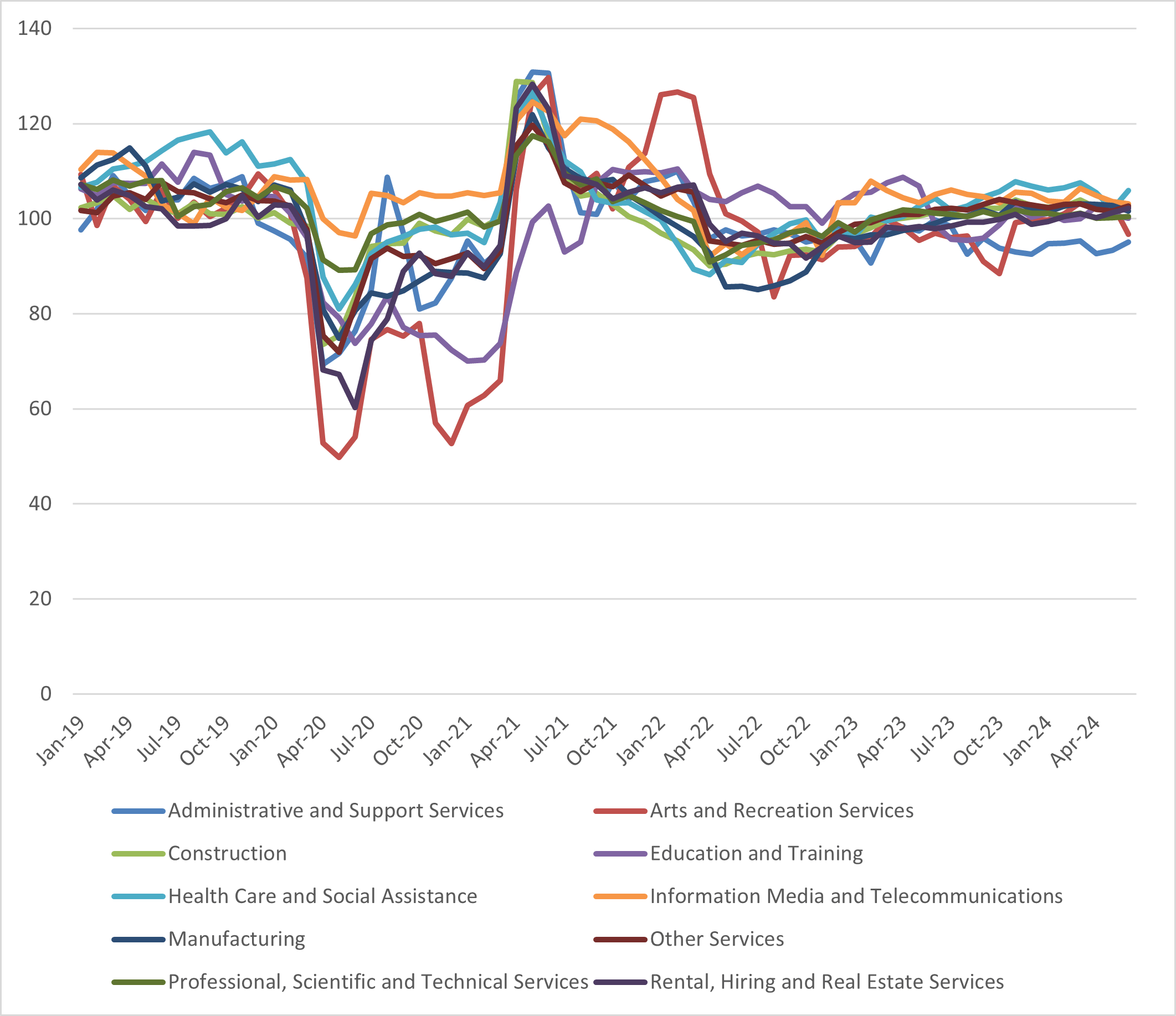Charlie Ball rounds up the latest data on the economy and labour market, and highlights a report that shows how Ireland shares many of the same challenges as the UK
The total number of online job adverts on 26 July 2024 increased by 6% when compared with the previous week and was 12% lower than the equivalent week of 2023, data from the Office for National Statistics (ONS) shows.
This is actually quite a large change for one week. Last week we were 20% below the equivalent figure for 2023, and many of the sectors seeing a jump - manufacturing, law, accountancy, IT, education, health - are all graduate recruiters, so it could be seasonal as recruiters look for the new crop of graduates who have just left university. So far this year these figures have been quite stable and it's most likely that this is a one-off outlier but we'll keep an eye on it.
Also out from the ONS are new figures on small business jobs. This is probably best shown in graphical form, and needs some explanation. The figure for each industry is not an absolute figure, it's relative to this time last year. The graph below shows the major employment sectors for college and university graduates and it's notable that apart from administration and the arts, running at 95% and 97% of the levels this time last year, staffing at small businesses is up on last year.
However, it's not clear how sustainable this is as most sectors reported lower sales in June 2024 than in June 2023. Again we'll keep monitoring this as the small business sector is so important to recruitment in the UK.

There is more to this story though, as the Recruitment & Employment Confederation (REC) reports that business confidence is rising.
Businesses reported that confidence in making hiring and investment decisions for their own firm saw a substantial increase by 12pts to a balance of +16 in the three months to June, while their outlook on the wider economy also improved, though it remains in negative territory (up 7pts to -29).
Despite this further evidence of growing confidence, there is a way to go to get growth flowing. There is some evidence of the short-term pauses that recruiters reported during the election campaign, with all classes of hiring intentions neutral-to-positive, but at marginally weaker rates than previously.
Indeed have similar findings. They find that job postings have been flat over the past two months, and that although the labour market has loosened of late it remains fairly tight - in other words recruitment is more difficult - than the historic norm. After a period of continuous cooling from post-pandemic highs over the past roughly 18 months, hiring demand levelled out over the past few weeks as economic data (culminating in this week's interest rate cut) has steadily improved.
Skills shortages among key challenges in Ireland
A new report from Ireland, Ireland's Competitiveness Challenge 2024, gives us yet more evidence to show that the UK and Ireland face similar labour market challenges.
The report notes that the Irish labour market has continued to expand up to Q1 2024. However, with Ireland being essentially at full employment over the last two years, there are capacity constraints which are limiting Ireland's ability to expand output - particularly in the delivery of infrastructure - which is a key competitiveness concern.
The key challenges facing Ireland's labour market include skills shortages in key sectors, facilitating greater participation in lifelong learning that brings it into line with international standards, and ensuring that Ireland remains an attractive place to internationally mobile workers.
Key Irish shortages at FE and HE level include medical scientists, engineers of all types, software developers, IT project managers, data engineers and analysts, medical practitioners and nurses, quantity surveyors and lab technicians. The UK is short in every one of these areas as well.
And just like the UK, Ireland has identified digital and green skills as areas in need of development. There is much in this report of interest to Irish and UK colleagues, as it's clear we share the same challenges and will likely need similar solutions to meet them.
Was this page useful?
Thank you for your feedback
